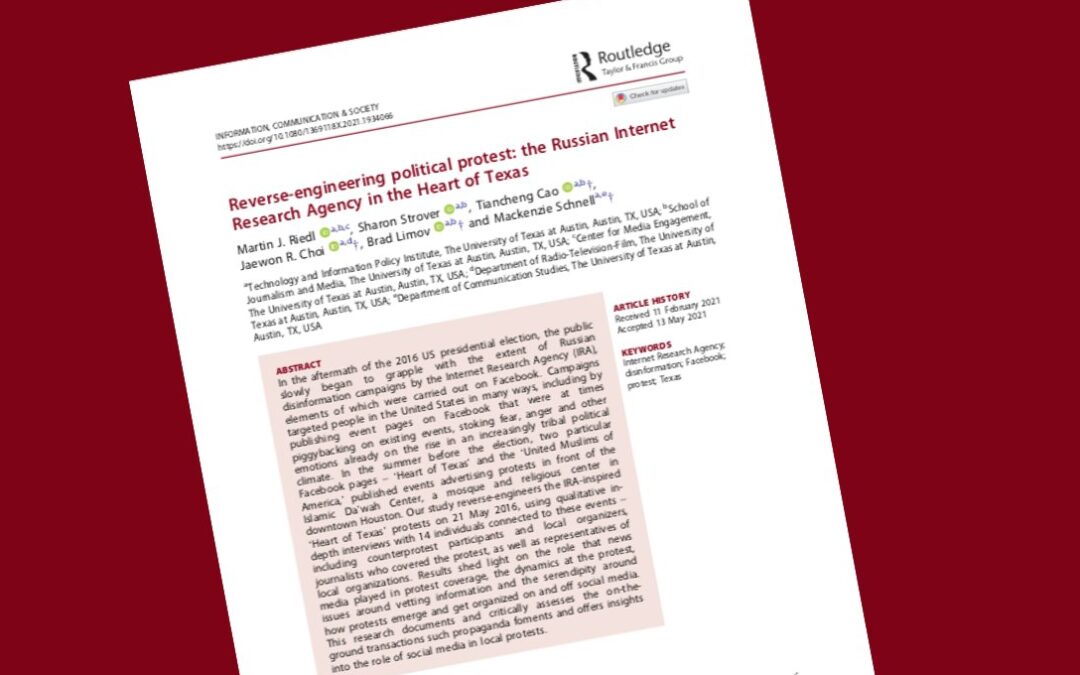For a new study recently published in Information, Communication & Society, TIPI looked at protests in Houston, Texas that occurred prior to the 2016 elections and which had been connected to the Russian Internet Research Agency-sponsored Facebook page ‘Heart of Texas.’
In the paper, titled ‘Reverse-engineering political protest: the Russian Internet Research Agency in the Heart of Texas,’ the researchers situate their study as a qualitative deep dive into one particular event. This allowed them to interrogate how ‘message, medium, and local context’ mobilized protest, and ‘reverse-engineered’ what exactly happened in Houston in May 2016. In response to Mercea et al., the team focused on ‘local settings and lived experience’ by conducting qualitative interviews with counterprotest organizers and counterprotesters, reporters, and representatives of local Houston and Texas organizations.
The study discusses Facebook event pages as an affordance for propaganda, as well as the broader implications for social media, politics, and protest. The persistence of the protest paradigm and the ongoing role of legacy media are also explored. Throughout, the researchers problematize ‘simplified accounts of Russian influence campaigns’ and emphasize ‘the role that local protest culture and the media played as a counterprotest shaped up against a white nationalist rally in Houston in 2016.’
Main findings of the study are as follows:
-
- The study ‘highlights how the ways in which activists and organizers use social media can easily be co-opted by nefarious actors that prey on dynamics associated with social movements.’
- It ‘suggests ascertaining cause and effect is incredibly difficult in protest settings that are built on trust relationships and around issues and causes.’
- The researchers emphasize that ‘the protests must be understood in the broader context of white supremacy and its emergent public displays.’
- They find the ‘IRA harnessed anti-Muslim sentiment, racism and xenophobia – homegrown problems of the United States – and was able to get (a few) white nationalists to come out, whose presence led to a genuine response of a (much larger) close-knit protester community.’
- The research ‘shows the fraught and fragile nature of contradictory strategies of managing hatred – through amplification of counternarratives, or through de-amplification via disengagement.’
- Lastly, the study shows how the ‘legacy media response to the protests was predictable in its reliance on protest paradigm framing, but blind to possible manipulation.’
The research team, led by Martin J. Riedl, included TIPI co-director Dr. Sharon Strover, Tiancheng Cao, Jaewon R. Choi, Brad Limov, and Mackenzie Schnell. You can read more about them and other researchers at TIPI by visiting Our Experts page.
This investigation was sponsored by Good Systems, a UT-Austin Bridging Barriers Grand Challenge.

